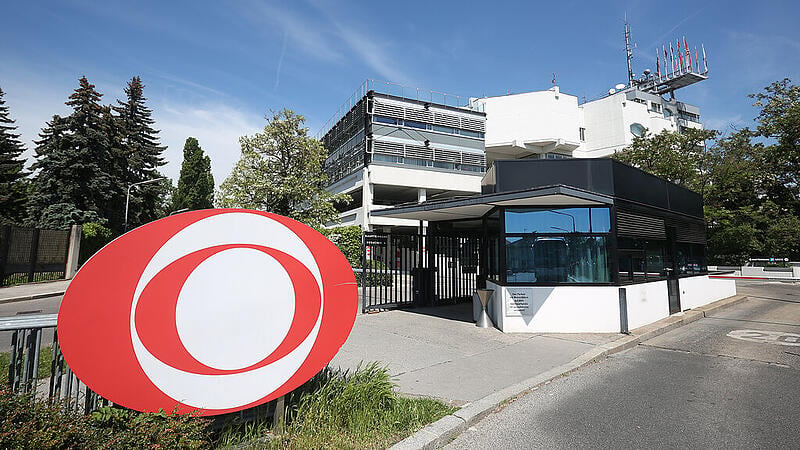Image: (APA/GEORG HOCHMUTH)
According to a broadcast, a five-point program was developed at a board meeting that “is intended to ensure a fair balance in the interests of a dual media market”. The demands include an evaluation of the ORF program and the extensive end of social media activities. The media ministry reacted with incomprehension.
In addition to switching from the device-linked GIS fee to a device-independent ORF contribution in the form of a household fee, the ORF amendment to the law provides for the possibility for the ORF to produce content online-first and online-only. The 7-day retrieval period in the ORF-TVthek is also abolished and the number of text messages on ORF.at is limited to 350 articles per week, with 70 percent of the page having to consist of moving image content in future. This freely accessible “blue page” in particular is a thorn in the side of publishers. The criticism is that it is too newspaper-like and thus inhibits the business models of other media companies in the digital sector.
Focus on audiovisual content
The VÖZ also responds to ORF.at in the five-point program and calls for a “clear focus on audiovisual content”. “The daily overview reporting must consist of audiovisual contributions,” according to the VÖZ. The demand is for an arbitration board to be set up with equal numbers of members from the newspaper and magazine publishers’ associations and the ORF board of directors. In order to be able to punish violations, there is also a need for a right of association to lodge a complaint with the media authority KommAustria.
According to the VÖZ, the current ORF programs should be evaluated with regard to the ORF’s public service mandate. What does not correspond to this should be “assigned” to the private media sector. The publishers believe that the associated reduction in the range of programs could also further reduce the ORF contribution, and they also call for a streamlining of the ORF structures and a reform of the committees, which should include depoliticization and downsizing of the board of trustees.
Principle of program support
The VÖZ is also skeptical about the possibility for the ORF to produce content “online only” and warns of a “proliferation of independent content that is detached from a specific program”. The principle of program support should also apply in the future. The advertising opportunities for the ORF are to be further limited to 1.5 billion ad impressions – i.e. visual contacts with advertising media – per year. The public media company should not receive any public funds for activities on social media platforms, although the VÖZ can imagine individual exceptions within the framework of the educational mandate.
The amendment to the law is currently being reviewed. However, the VÖZ is still available for serious negotiations. Because contrary to a statement by Chancellor Karl Nehammer (ÖVP), it should not have happened so far. “The process was characterized by secrecy with sparse and selective bits of information. Fair and open negotiations with the affected stakeholders definitely look different,” said VÖZ President Markus Mair.
The demands of the VÖZ meet with incomprehension in the media ministry. In the course of the law becoming “of course, there were ongoing consultations and talks with the representatives of the VÖZ,” which “were in good agreement about the necessary measures to strengthen the entire media location”. Concrete measures would also have found their way into the draft assessment. “The fact that the association is now making new demands that go far beyond this is met with incomprehension in the media ministry,” it said.
Arguments for legislation
However, as a reaction to the heated debate about the amendment, the ORF has put arguments on the bills on its website. This stipulates that the ORF only receives the funds that it needs to cover the net costs of the public service mandate. The law provides for 710 million euros annually until 2026. The ORF contribution of 15.30 euros per household and month is significantly cheaper than the previous GIS fee and now distributes the costs more fairly between households, with socially disadvantaged households remaining exempt from contributions.
The financing of public service broadcasters is important “to ensure easy, low-threshold access to high-quality information, culture, sports and entertainment for all citizens at national and regional level and to act as a platform for democratic discourse and social integration “. In principle, public acceptance of ORF’s programs is “very high”. 85 percent of the population uses ORF every day.
The ORF does not want to speak of a “massive expansion” of its online rights. The options available so far are very limited. You now get more leeway, but remain “still very tightly regulated”.
It is also noted: “Historically, the desired steering effect of favoring the Austrian private media economically through ORF restrictions has never materialized.” The ORF points out much more that the dual media system in Austria is threatened by the monopoly positions of Google, Meta and Co. “More than 80 percent of the online advertising market is already on international platforms, on the ORF only 1 percent,” says the argument.
more from culture
Tucker Carlson: A fake news spreader flees on Twitter
Fresh air open air brings the stars to Linz
The Upper Austrian who manages more than ten million euros for the film
Theft of the Saliera: How a Salt Cellar Started an Art Mystery
: Nachrichten
I am an author and journalist who has worked in the entertainment industry for over a decade. I currently work as a news editor at a major news website, and my focus is on covering the latest trends in entertainment. I also write occasional pieces for other outlets, and have authored two books about the entertainment industry.




